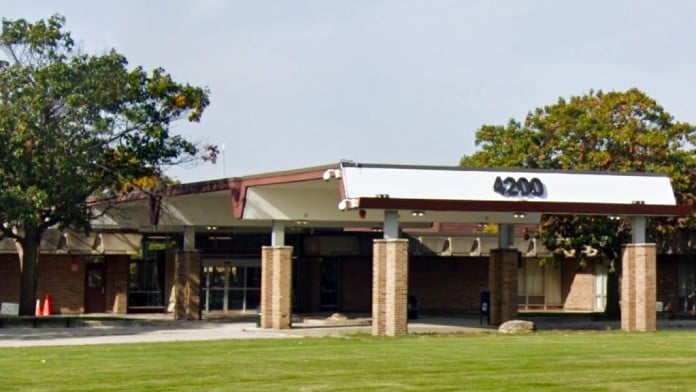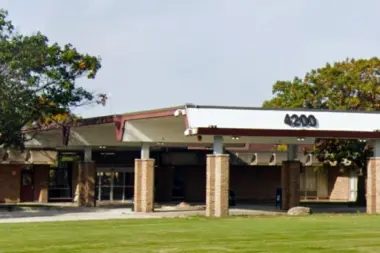U R SO MUCH AWESOMER THAN MADDEN STATE PSYCH HOSPITAL GOOD JOB
About Chicago Read Mental Health Center
Chicago Read Mental Health Center is an inpatient psychiatric care facility and drug and alcohol rehab for adults in Chicago, Illinois. Dedicated services are available for seniors, young adults, persons with hearing impairment, LGBTQ+ persons, persons with HIV/AIDS, military personnel, and persons with co-occurring addiction and mental illness.
The inpatient program allows clients to focus on their recovery in a highly supportive and structured environment. Clients receive medical and mental health assessments, personalized care plans, and comprehensive case management. They also engage in intensive, trauma-informed individual, group, and family counseling drawing on proven modalities, including CBT and DBT. Their evidence-based complementary therapies include experiential therapy and nutrition therapy. They also prioritize recovery-focused life skills training, including courses in relapse prevention.
The aftercare services are designed to promote clients’ long-term recovery through a robust continuum of care aligned with clients’ evolving needs. Services may include transitional support for clients moving from inpatient to outpatient treatment, 12 step program facilitation, and referrals for medical, mental health, and social service programs.
Chicago Read Mental Health Center accepts private insurance, Medicare, Medicaid, self-pay, and financing.
Latest Reviews
Rehab Score
Gallery


Accepted Insurance
Other Forms of Payment
Private insurance refers to any kind of healthcare coverage that isn't from the state or federal government. This includes individual and family plans offered by an employer or purchased from the Insurance Marketplace. Every plan will have different requirements and out of pocket costs so be sure to get the full details before you start treatment.
Self-pay involves paying for treatment out of your own pocket. You can use savings or credit, get a personal loan, or receive help from family and friends to fund your treatment. If you don't have insurance or your insurance plan doesn't cover a specific program, self-pay can help ensure you still get the care you need.
Financial aid can take many forms. Centers may have grants or scholarships available to clients who meet eligibility requirements. Programs that receive SAMHSA grants may have financial aid available for those who need treatment as well. Grants and scholarships can help you pai for treatment without having to repay.
Medicare is a federal program that provides health insurance for those 65 and older. It also serves people under 65 with chronic and disabling health challenges. To use Medicare for addiction treatment you need to find a program that accepts Medicare and is in network with your plan. Out of pocket costs and preauthorization requirements vary, so always check with your provider.
Military members, veterans, and eligible dependents have access to specific insurance programs that help them get the care they need. TRICARE and VA insurance can help you access low cost or no cost addiction and mental health treatment. Programs that accept military insurance often have targeted treatment focused on the unique challenges military members, veterans, and their families face.
Medicaid is a state based program that helps lower-income individuals and families pay for healthcare. Medicaid covers addiction treatment so those enrolled can use their coverage to pay for rehab. When a program accepts Medicaid the client often pays very little or nothing out of their own pocket.
Addiction Treatments
Levels of Care
Chicago Read Mental Health Center offers inpatient mental health treatment, including crisis stabilization and recovery support in a safe, structured environment. Their inpatient services are vital for individuals needing intensive care and immediate access to mental health professionals.
The facility provides an intensive outpatient program (IOP) that supports individuals in recovery from mental health and substance use issues. This program offers flexible treatment options, allowing patients to receive therapy while maintaining their daily routines.
Treatments
Chicago Read Mental Health Center offers specialized dual diagnosis treatment, addressing co-occurring mental health and substance use disorders. Their comprehensive approach integrates mental health services with addiction recovery, ensuring individuals receive tailored care to support long-term sobriety and mental wellness.
The center provides a range of mental health services, including crisis and non-crisis support, within a recovery-oriented system of care. These services are designed to promote mental wellness and stability for residents of Chicago and the surrounding Illinois communities.
Programs
Chicago Read Mental Health Center’s adult program delivers comprehensive mental health services, including crisis intervention and ongoing therapy, tailored to meet the needs of adults seeking recovery and stability within Illinois’ mental health system.
The center offers specialized mental health services for young adults, focusing on recovery and resilience. This program provides targeted support to help young adults navigate mental health challenges and transition into stable, healthy lifestyles.
Chicago Read Mental Health Center provides LGBTQ-specific mental health and substance abuse treatment, creating a safe, inclusive environment. Their services include crisis support and recovery programs designed to meet the unique needs of LGBTQ individuals.
The facility offers mental health services tailored for military personnel and veterans, emphasizing recovery and resilience. Their programs support those dealing with service-related mental health challenges within a compassionate, recovery-oriented framework.
Clinical Services
Cognitive Behavioral Therapy (CBT) is a therapy modality that focuses on the relationship between one's thoughts, feelings, and behaviors. It is used to establish and allow for healthy responses to thoughts and feelings (instead of unhealthy responses, like using drugs or alcohol). CBT has been proven effective for recovering addicts of all kinds, and is used to strengthen a patient's own self-awareness and ability to self-regulate. CBT allows individuals to monitor their own emotional state, become more adept at communicating with others, and manage stress without needing to engage in substance abuse.
Dialectical Behavior Therapy (DBT) is a modified form of Cognitive Behavioral Therapy (CBT), a treatment designed to help people understand and ultimately affect the relationship between their thoughts, feelings, and behaviors. DBT is often used for individuals who struggle with self-harm behaviors, such as self-mutilation (cutting) and suicidal thoughts, urges, or attempts. It has been proven clinically effective for those who struggle with out-of-control emotions and mental health illnesses like Borderline Personality Disorder.
Group therapy is any therapeutic work that happens in a group (not one-on-one). There are a number of different group therapy modalities, including support groups, experiential therapy, psycho-education, and more. Group therapy involves treatment as well as processing interaction between group members.
In individual therapy, a patient meets one-on-one with a trained psychologist or counselor. Therapy is a pivotal part of effective substance abuse treatment, as it often covers root causes of addiction, including challenges faced by the patient in their social, family, and work/school life.
Trauma therapy addresses traumatic incidents from a client's past that are likely affecting their present-day experience. Trauma is often one of the primary triggers and potential causes of addiction, and can stem from child sexual abuse, domestic violence, having a parent with a mental illness, losing one or both parents at a young age, teenage or adult sexual assault, or any number of other factors. The purpose of trauma therapy is to allow a patient to process trauma and move through and past it, with the help of trained and compassionate mental health professionals.
Whether a marriage or other committed relationship, an intimate partnership is one of the most important aspects of a person's life. Drug and alcohol addiction affects both members of a couple in deep and meaningful ways, as does rehab and recovery. Couples therapy and other couples-focused treatment programs are significant parts of exploring triggers of addiction, as well as learning how to build healthy patterns to support ongoing sobriety.
Research clearly demonstrates that recovery is far more successful and sustainable when loved ones like family members participate in rehab and substance abuse treatment. Genetic factors may be at play when it comes to drug and alcohol addiction, as well as mental health issues. Family dynamics often play a critical role in addiction triggers, and if properly educated, family members can be a strong source of support when it comes to rehabilitation.
Nutrition therapy, aka medical nutrition therapy (MNT), is a way of treating physical, emotional, and medical conditions through diet. Specific dietary plans are designed by professional nutritionists or registered dietitians, and patients follow them in order to positively affect their physical and mental health.
Recreational therapy in an addiction treatment program in Idaho helps you rediscover the joy and build healthy habits you can continue as you reenter the community. Activities can include gardening, yoga, and group games that all promote relaxation, improve mood, and encourage interaction and community building. These factors are crucial for sustaining long term recovery.
Amenities
-
Private Rooms
Staff
David Albert, PhD
Director
Ryan Rollinson, LCSW
Chief of Staff
Meredith Kiss, MA
Associate Director of State Operated Psychiatric Hospitals
Lisa Betz, LCSW
Deputy Director of Child and Adolescent Services
Yetunde Johnson, MD, MPH
Statewide Medical Director
Patricia Hudson, LCSW
Deputy Director of Facility Management
Nanette Larson, CRSS, CPRS
Deputy Director of Wellness & Recovery Services
Darius McKinney
Deputy Director of Community Programs
Contact Information
4200 North Oak Park Avenue
Chicago, IL 60634




